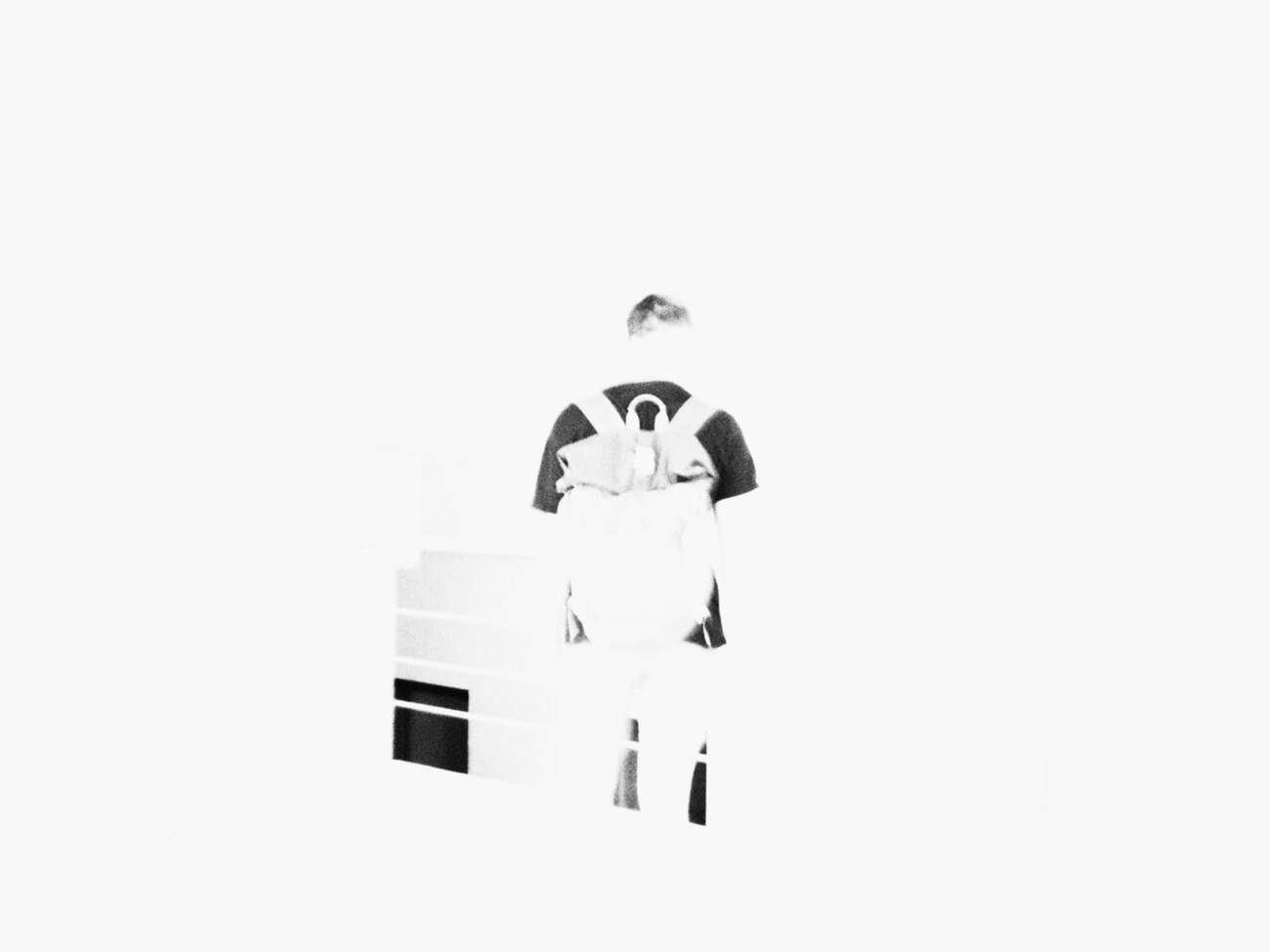
The life of HIV-positive persons depends on receiving adequate treatment. The total cost of pills can go up to several hundreds of thousands of roubles yearly. Most get their treatment provided by the state. Even before the war, activists had complained that the government wasn’t spending money on providing the needed treatment, causing delays and leaving some patients no choice but to take cheaper drugs. Since the invasion, with an influx of refugees from Ukraine, even more HIV-positive people are in need of treatment. Meanwhile, the prices of drugs can go up: the meds are made in Russia, but the ingredients are brought from Europe and Asia.
Novaya Vkladka interviewed three HIV-positive persons: a Ukrainian who recently came to Russia and two Russians — one of whom stayed at home and the other moved to India.
The original piece was published in June 2022.
On February 24, 2022, 37-year-old Vitaly (not his real name) cried all day. He had left his native town in Eastern Ukraine to go work in a city in the Ural mountains, leaving his mother at home, not knowing, when he would see her next.
Over the next few days after the invasion, his mother would tell him about the shelling of the weapons depots near her house.
Vitaly’s number was saved on her phone as “Vitaly Son Russia”, and after the start of the war, he asked her to change it, in case soldiers were to check. “I said to her: mum, remove the ‘Russia’, part, it’s unnecessary. Vitaly-son, Vitaly-daughter, whatever, but without that word.”
Vitaly hoped that the war would soon be over and that he would return home. He is HIV-positive, so he also needed to go back to get his medication from the AIDS Center. The names of these organizations in Ukraine are similar to the Russian ones and also give out drugs for free. He had a month’s worth of medication with him, and he could not suspend the treatment. But the fighting continued, and Vitaly realised he only had himself to rely on.
The Russian government issued a decree, promising to provide HIV-positive refugees from Ukraine with the required medication. But in order to receive drugs, they would have to get registered in Russia. This means that sooner or later refugees could be deported: The Ministry of Health has put HIV on the list of diseases with which the stay of foreigners in Russia is restricted. One way to avoid deportation is, for example, to have relatives in Russia.
When Vitaly was leaving for Russia, he thought he could go back home every six months to get his drugs: “A couple of hours to get to Moscow, a night bus, and you are already in Kyiv. But no one, not even in their wildest dreams, could imagine a situation like this”.
“What, is my passport not blue enough?”
Vitaly started taking his medication four years ago. For six months before that, he had hesitated whether it was worth it. His doubts disappeared when his body weight fell down to a little over 40 kilograms, a dangerous number for someone his height (174 centimetres). He’d need to rest after washing the dishes, and need to sit down after walking two hundred metres, he says.
Soon after he started taking meds, his viral load became undetectable. Studies show that people with such a low viral load can have the same life as those without HIV: have sex without infecting others and have healthy children.

Vitaly, who is Russian by birth, was born in the Moscow region and moved to Ukraine only after his parents divorced. As a Russian he felt comfortable in Ukraine: he was free to speak his native language even at work, which also involved making public speeches. Russian language, he feels, has only become secondary to Ukrainian in recent years.
He recalls being told in a shop: “You are in Ukraine, so speak Ukrainian”. Once Vitaly had an argument with a colleague about whether or not it was even possible to speak Russian in everyday life. The colleague thought it wasn’t, he said: “Suitcase, train station, Russia”.

The last straw was an important work meeting when Vitaly could not answer a question in Ukrainian and switched to Russian: “Then I had to listen to my boss’ scolding. But I pay taxes — for all that money I have the right to speak the language I want. What, is my passport not blue enough?”
In the autumn of 2021, Vitaly came to visit a friend in the Urals and got a job “in the field of hard physical labour”. “For now I can’t find anything better”, he says. When the war started in the spring, he had to deal with a whole different problem — looking for medication.
Saving on treatment
At first, Vitaly wanted to order drugs online. But for an equivalent of the medication he was being given in Ukraine, he’d have had to pay 30,000 roubles — and those pills would only last him three months. Vitaly, who earns just over 20 thousand roubles a month, did not have that kind of money.
A friend recommended he talks to activists who help people with HIV via a Telegram chat. They gave him contacts of activists from the city where he was staying.
One of those activists has a transparent plastic box at home, about 30 cm wide and 40 cm long. Inside, among other medicines, there’s a bag with pills to treat HIV. The activist gives them to whoever asks for them. This is called a first-aid kit — they have those in many Russian cities, either in activists’ homes or in offices of NGOs.
This first-aid kit is refilled with the help of acquaintances. For example, a doctor at the AIDS Centre may give one of the patients pills for a certain period of time, but the patient could come to get a new batch earlier than scheduled. The leftover pills are then put into the kit. Or a patient can buy his own drugs and give those he gets at the AIDS Centre to the community.

After February 24, 2022, activists across Russia did a “roll call” among community members, says an activist from the Urals, asking “whether or not they had a kit; and if they did, whether they were willing to share with others or not”.
None of the drugs Vitaly needed were available in the Urals first-aid kit. Vitaly decided to take what was available. He started alternating: one day he’d take the meds prescribed as part of his treatment, and the day after — an incomplete set of pills. “Patient Control” movement, the Treatment Preparedness Coalition and infectious disease doctor Ekaterina Stepanova put together a memo for those cases after the start of the invasion. According to the memo, some drugs can be taken every other day: “This is just a temporary measure that allows to stretch the supply of drugs until full access to the treatment plan is restored”.
“It is important to stress that studies have been conducted for only one of the treatment types, says Stepanova, the author of the memo. Most drugs cannot be taken every other day. The virus can develop resistance to the drugs, and in the future, a much more complex treatment could be needed.”
By the time the drugs he had brought from Ukraine ran out, Vitaly had saved up enough to buy some more. He takes those every other day, too, because “that way they last longer”. He wants to do the tests, which show the effectiveness of the treatment, at the end of the summer. “I will save up some money”, he says.
“Ok, guys, I’ll do it myself”
On February 24th, a 47-year-old journalist from Moscow, Theodor Traxel, wasn’t ready for war. He had less than a month’s worth of pills stocked up.
In early March, as rumours of mass mobilisation started to spread, he decided to emigrate. “I could see where it was all going, that it was going to get worse and worse, says Traxel. I chose freedom over therapy. I went out and bought a suitcase. Took a bath. I threw everything I could into the suitcase. Took a taxi and left.”
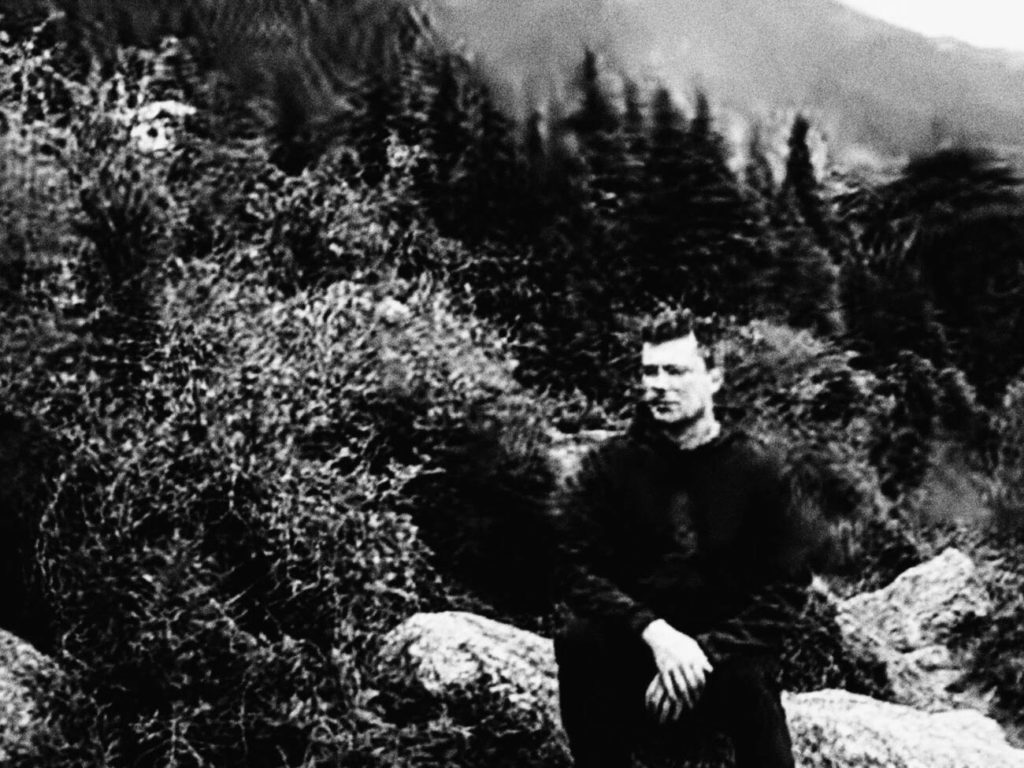
He could have left an authorization for someone else to receive medication on his behalf from the AIDS Center and send them over. But Traxel “no longer wanted to receive treatment from Russia”, on principle. There are HIV-positive people everywhere, he thought, which means he would be able to get drugs in the new country. Traxel flew to India — he had lived and worked there before and considered it his second home.
He had a stopover in Uzbekistan, but eventually wasn’t allowed to get on the second plane: India had imposed a ban on Russians from Uzbekistan. He had to go to another country and fly to India from there. It took him two weeks.
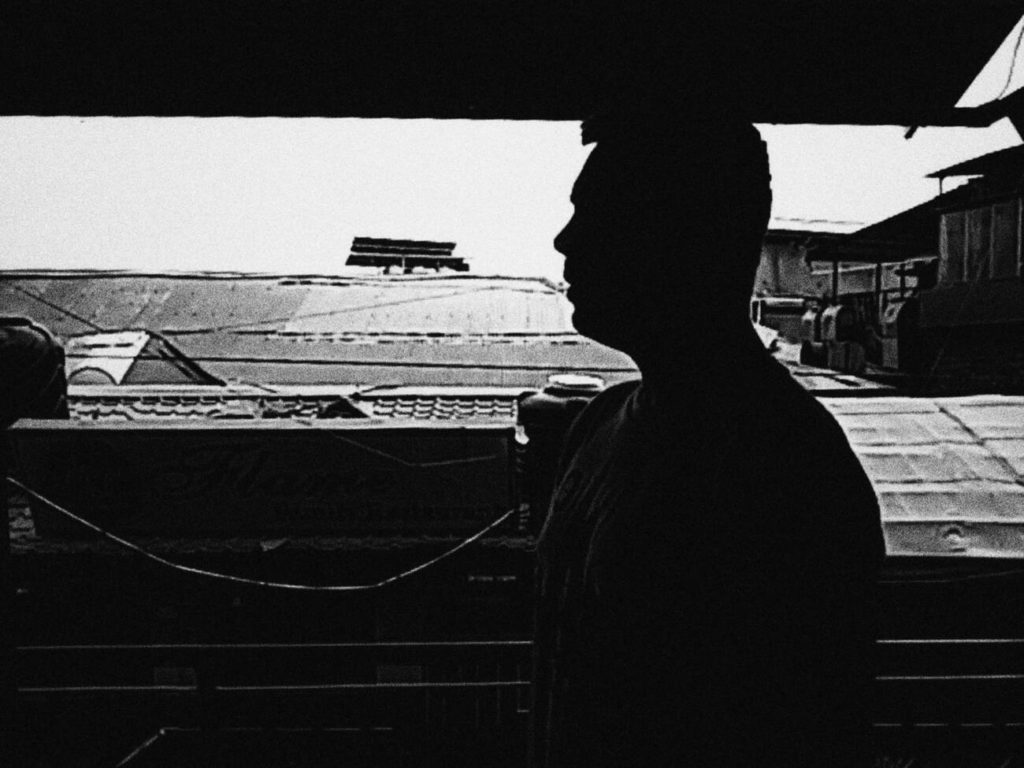
In Tashkent, Theodore ran out of pills. Local Russian-speaking activists promised to find medicine for him, but they couldn’t do it quickly. Besides, he thought that by accepting help, he would be taking away medicine from someone local. “Okay, guys, I’ll do it myself,” he said and waited until he got to India.
He stopped taking his pills. “It has happened before that I stopped taking them, says Traxel. It’s no big deal. For a week or two it’s fine.”
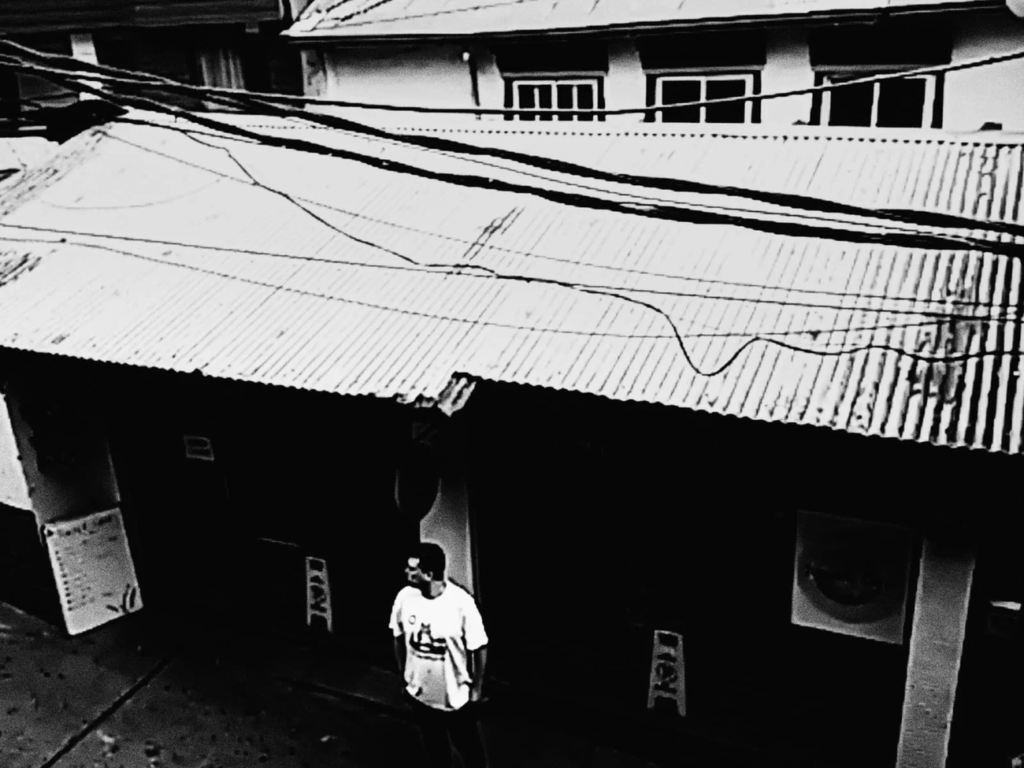
The activists’ memo says that suspending the medication is “a temporary measure of last resort”. It is allowed for any period until full access to medication is restored. “At the same time, stopping the treatment will stop suppressing the virus,” explains infectious disease doctor Stepanova. This is dangerous for the person if the immunity has not yet had time to increase. It can lead to a worsening of overall well-being. In addition, the principle “undetectable equals non-transmissible” will cease to work and the probability of transmitting the virus to a partner through sexual intercourse will increase. However, if medication is not available and a break is unavoidable, one should remain calm. As soon as medication becomes available, it will be okay”.
In India, acquaintances helped Traxel find the medicine. He paid 15,000 roubles for a six-month supply. Like Vitaly, Theodore has not yet had any tests — he has other things to worry about. “I already know my body, so if something goes wrong, I feel it immediately. And I have reacted well to the new drugs”, he says.
“One packet in Tver, three in Ryazan, seven in Voronezh”.
Kirill (not his real name), a 28-year-old designer from Moscow, decided to stockpile his pills in case he had to leave in a hurry. His AIDS centre gave him six months’ worth of pills and, since the appointment to get a new batch was still a long way away, he decided to buy the drugs himself.
Kirill takes two different drugs: the British Tivicay and the Russian Heptavir. “Everything was sold out in Moscow, so I had to look for the pills in online pharmacies around the city,” he says. But Tivicay was also in short supply in other cities: “In Tver, there was one package left, in Ryazan, there were three, and in Voronezh, there were seven”. Kirill went to Tver. Then, as he was about to head to Ryazan, he saw that the drug was again available in Moscow. Then he went to a town in the Moscow region to get Heptavir. In total, he spent a whole day travelling by regional trains and spent about 80,000 roubles.

The Ministry of Health, meanwhile, urged Russians not to panic and not to stock up on drugs. “There is no need to stockpile,” Health Minister Mikhail Murashko said in late March 2022, during a meeting between Vladimir Putin and members of the government. He added that drug manufacturers and distributors were working as usual.
According to the Treatment Preparedness Coalition, interruptions with drug provisions happened even during peacetime: in some regions, the annual supply of drugs to AIDS centres would run out in December and patients had to wait until spring for the next batch.
Thousands of HIV-positive refugees
The Ministry of Health spends about 30 billion roubles every year on drugs for people with HIV and different types of hepatitis. This budget should be increased by 10 billion roubles, says Alexey Mikhailov from the Treatment Preparedness Coalition.
Now it’s not just Russians but also Ukrainians who are in need of treatment. According to WHO data, since February 24th 2022 over 7 thousand people in need of treatment have come to Russia from Ukraine. There are about one million people living with HIV in Russia, according to the official statistics.

Most of the drugs that are taken by Russians living with HIV are domestically produced. These are generics i.e. analogues of imported medicines. Their active ingredient is imported mainly from India and China, which means that its costs depend on the dollar exchange rate.
The excipients come mainly from Europe and the US, regions that no longer have direct flight connections with Russia. This adds logistical problems and affects prices. Pharma companies, in response to letters from activists, assured that they have no plans to phase out production in Russia. Some of them provide community activists with free pills for Ukrainian refugees. “So it’s not like they are running out of stock,” says Alexei Mikhailov. But, he adds, by 2023 the drugs could become more expensive.
There are also drugs that are made exclusively in Russia. They are cheaper but more toxic. “In terms of HIV, everything will be fine. The viral load won’t rise, Mikhailov says. But the patient might start losing his or her hair, get a rash — and these are the milder side effects”.
Yellow eyes
Diarrhoea, a continuous side-effect of the less-expensive pills is all too familiar for 20-year-old Anastasia Leontieva from Samara, who has lived with it since she was 18. Leontieva asked her doctor at the AIDS Centre to prescribe her a different drug, but they refused. Then she threatened to stop taking the pills.
“I won’t take the medicine anymore, Anastasia recalls saying. It makes me sick, I can’t work properly, I’m constantly running to the bathroom”.
Leontieva was prescribed the new medication and the diarrhoea went away, but another side effect appeared. “People used to ask me: “Why are your eyes so yellow?” — she says. She was told to drink more water, but it didn’t help. Once, when her eyes were particularly yellow, Anastasia took a selfie and showed it to the doctor. That was in late March 2022. She was given yet a new drug regimen and now the side effects finally don’t bother her.
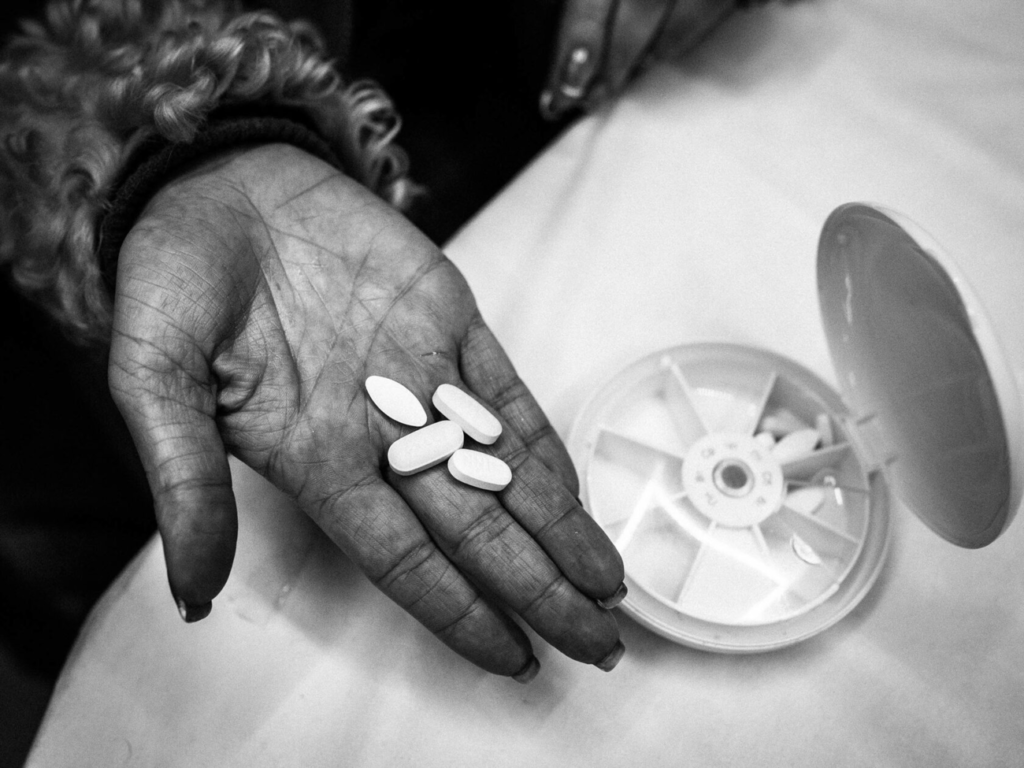
Some of Anastasia’s peers from different cities get better medication than she does, a single pill that has to be taken once a day. Those pills are produced abroad. Leontieva has to take four pills every day. But some of those who take the one-pill-a-day treatment were warned by their AIDS centres that they too might have to switch to cheaper drugs, Leontieva says.
Vitaly, a Ukrainian citizen stuck in the Ural mountains, does not expect to receive any medicine from the state: “I can only count on myself.” He says he lives “day by day and it’s all a fog”.

Theodore Traxel, who has moved from Moscow to India, also has “no strategy”. “I am here for now. I can easily buy pills, so my soul is at peace”, he says.
Kirill, a designer from Moscow, “had hope up until February that the treatment would move to the next level”. He had read about “British vaccines that last for a week — and require no daily pills”. Now, Kirill says, “It’s not clear whether this future will be possible”.





